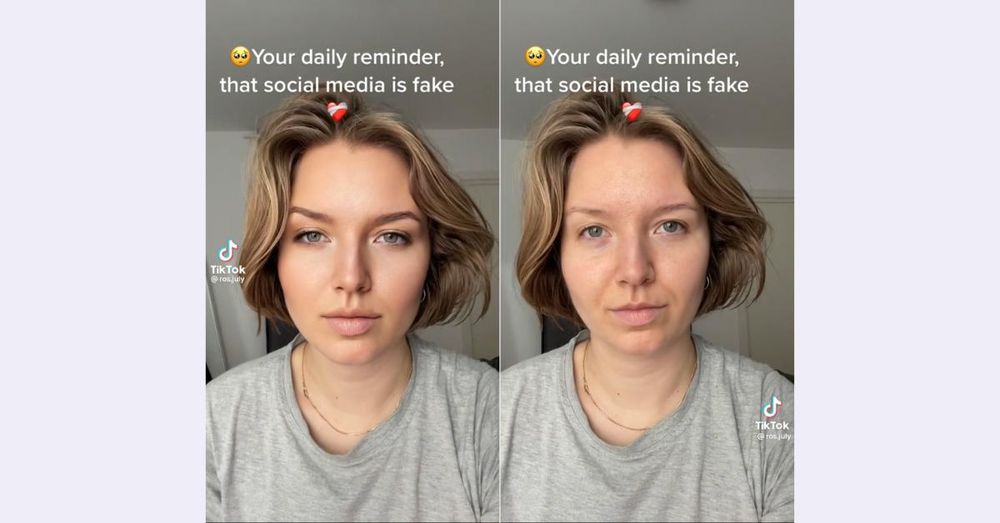SOCIAL MEDIA
TikTok's Filters Are Harming Your Kid
The recent uproar over the "Bold Glamour" filter on TikTok has sparked a lot of controversy around the most popular social media platform among teens. We take a closer look at how such filters affect teens and give parents tips on how to support their kids.

What Are Social Media Filters?
Filters are digital effects or masks applied to videos and photos in real time. What began innocently with dog ears and doe eyes has become a tool for many to enhance their own appearance. Users can smooth their skin, enlarge their eyes, apply makeup, or tighten their cheeks. The results are often very precise and almost disturbingly realistic.
Currently, the "Bold Glamour" filter is going viral on TikTok and causing a stir once again. The filter makes users look as glamorous as if they just stepped off a Photoshopped magazine cover. While many are excited about the authenticity of the filter, "Bold Glamour" and other filters are causing great concern among health experts and parents. Let's take a look at why.
How Do Filters Affect Teens?
While filters on TikTok and other social media may be entertaining and a lot of fun, in the long run they can be harmful and have a negative impact on teens' mental health and self-esteem.
Here's why filters are problematic:
1. They create unrealistic beauty standards.
Filters on TikTok make users appear flawless and perfect, which can lead to unrealistic beauty standards. This is especially harmful for teens, who are developing their self-esteem during adolescence and may compare themselves to images they see on social media.
2. They promote a culture of perfection.
Social media is "fake" - so many people pretend that their lives are glamorous and that they always look perfect. Even when teens are aware of the illusion, they inevitably compare themselves to others, leading to feelings of inferiority and insecurity.
3. They lead to a distorted self-image.
When teens constantly use filters, it can lead to a sense of dissatisfaction with their natural appearance. A negative body image is only reinforced when teens receive compliments and likes for their filtered appearance. You may also have noticed that teens now often use the cell phone camera with filters as a substitute for a mirror.
What Can You Do to Help?
Have open and honest conversations
Talk to your teen about the impact that filters on TikTok can have on their mental health and self-esteem. Encourage them to be mindful of the content they consume on social media and to take breaks from social media when they feel overwhelmed.
Limit screen time
The less time your teen spends on social media, the less risk they're exposed to. Sounds logical, right? With Ohana, you can not only limit your kid’s screen time, but you can also block TikTok. This will also stop the notifications your kid receives from TikTok - so they don't feel like they're missing out. #FOMO
Help develop a healthy self-image
Emphasize your kid's strengths and unique qualities. Show them that beauty comes in all shapes and sizes, and that it's okay not to be or look perfect. No one does.
Be a good role model
Although it's not always easy, practice what you preach. Don't make negative comments about your appearance or compare yourself to others on social media. Instead, focus on promoting a healthy self-image and positive body image.
Stick to the age limit
Officially, you can open an account on TikTok from the age of 13. Unfortunately, this age restriction is very easy to circumvent. Yes, there are seemingly harmless videos on TikTok - but trust us, there's a reason for the restriction: TikTok can be especially harmful to young kids.
Is TikTok Doing Anything About This?
The short answer is: not really. Filters are one of the reasons TikTok has become so popular, so of course the company isn't going to do anything to damage their business. It's now common for social media companies like TikTok to introduce parental controls or time management features and then hype them up big time. Unfortunately, these measures don't go far enough to be effective.
For example, TikTok recently announced that it will introduce a daily screen time limit of 60 minutes for users under 18. If they exceed this limit, they will have to enter a passcode to continue using the app. So TikTok won't strictly limit screen time for kids, the reminders are meant to help young users control their time on the app. (Let’s be honest, would you really rely on your kid's self-control?)
This move comes at a time when TikTok is under significant political pressure. In addition to the lack of child protection, the company faces accusations of data spying. Governments in the U.S. and Canada, as well as the European Commission, have already banned their employees from using TikTok on their work phones.
As you can see, there is hardly anything positive that can be said about TikTok. Take action and protect your kid - with Ohana on your side.
Photo credit: TikTok/@ros.july